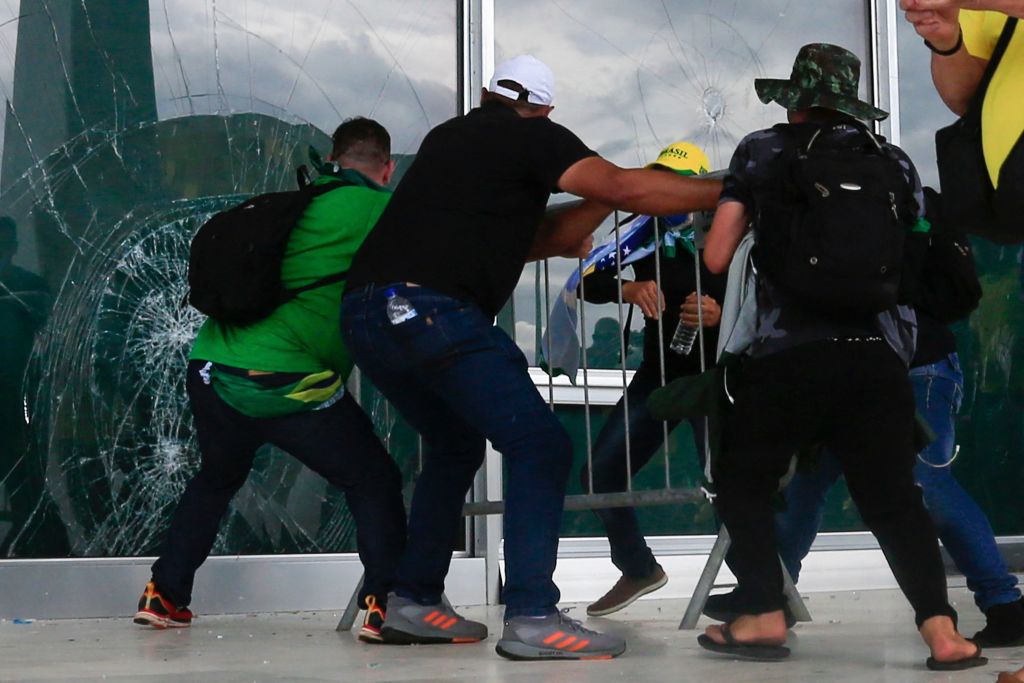Far-Right Supporters In Brazil Attack National Congress
Brazil’s Far-Right Takes A Page From US Insurrectionists In Attack On National Congress

Source: SERGIO LIMA / Getty
Black voters in Brazil helped change the direction of the country when voters reelected President Luiz Inácio Lula da Silva, known as simply Lula. With a clear majority, Lula supporters defeated the man leading the country’s far-right movement.
But two years after supporters of former President Donald Trump attacked the U.S. Capitol, Brazilian supporters of former president Jair Bolsonaro took similar action. Approximately one week after Lula was sworn into office, Bolsonaro’s supporters broke through security barriers and stormed the country’s Supreme Court and National Congress.
While neither the National Congress nor the Supreme Court was in session, the attack on these democratic institutions could still have a chilling effect across the region. The rise of fascism internationally has been a major concern. Many across Latin America viewed Lula’s return to the presidency as a return to Democracy across the region.
According to a translation, Lula noted that while members of his party have been wronged, they have never invaded the National Congress as Bolsonaro’s followers have done.
He also called the attack an abominable act by “fascists” and said there was a suspected lack of security in Brasilia.
As Lula was being sworn in, Bolsonaro was hightailing it to Florida. While Lula secured the majority vote in both rounds of voting, he did the best in the predominantly Black northeastern part of the country. But he faired pretty well in many other regions of the country as well.
The newly-minted president appointed several women to his government and made strides to improve racial equality. As reported by Democracy Now, Anielle Franco will serve as the country’s minister of racial equality and Sônia Guajajara will be the country’s first minister for Indigenous peoples.
Franco is a Black journalist, activist, educator and sister of Marielle Franco, a Rio de Janeiro’s City Council member who was assassinated in 2018.
As we’ve seen in the U.S., defeating a far-right leader is only one step to combatting the global pull toward fascism. Brazil took a decisive step in the right direction when Bolsonaro was defeated.
Some Twitter users compared the police response to the attack on the Federal institutions with a peaceful indigenous protest last year, similar to comparisons made in the U.S. During the election runoff National police loyal to Bolsonaro reportedly engaged in voter suppression, trying to stop voters in regions favoring Lula.
“Whoever did this will be found and punished. Democracy guarantees the right to free expression, but it also requires people to respect institutions,” Lula said according to the translation. “There is no precedent in the history of the country what they did today. For that they must be punished.”
SEE ALSO:
Justice For Sinzae Reed! Protesters Demand Accountability For 13-Year-Old Killed By White Man
Gov. Ron DeSantis Administration Demands Universities Report Programs On Diversity, CRT
















